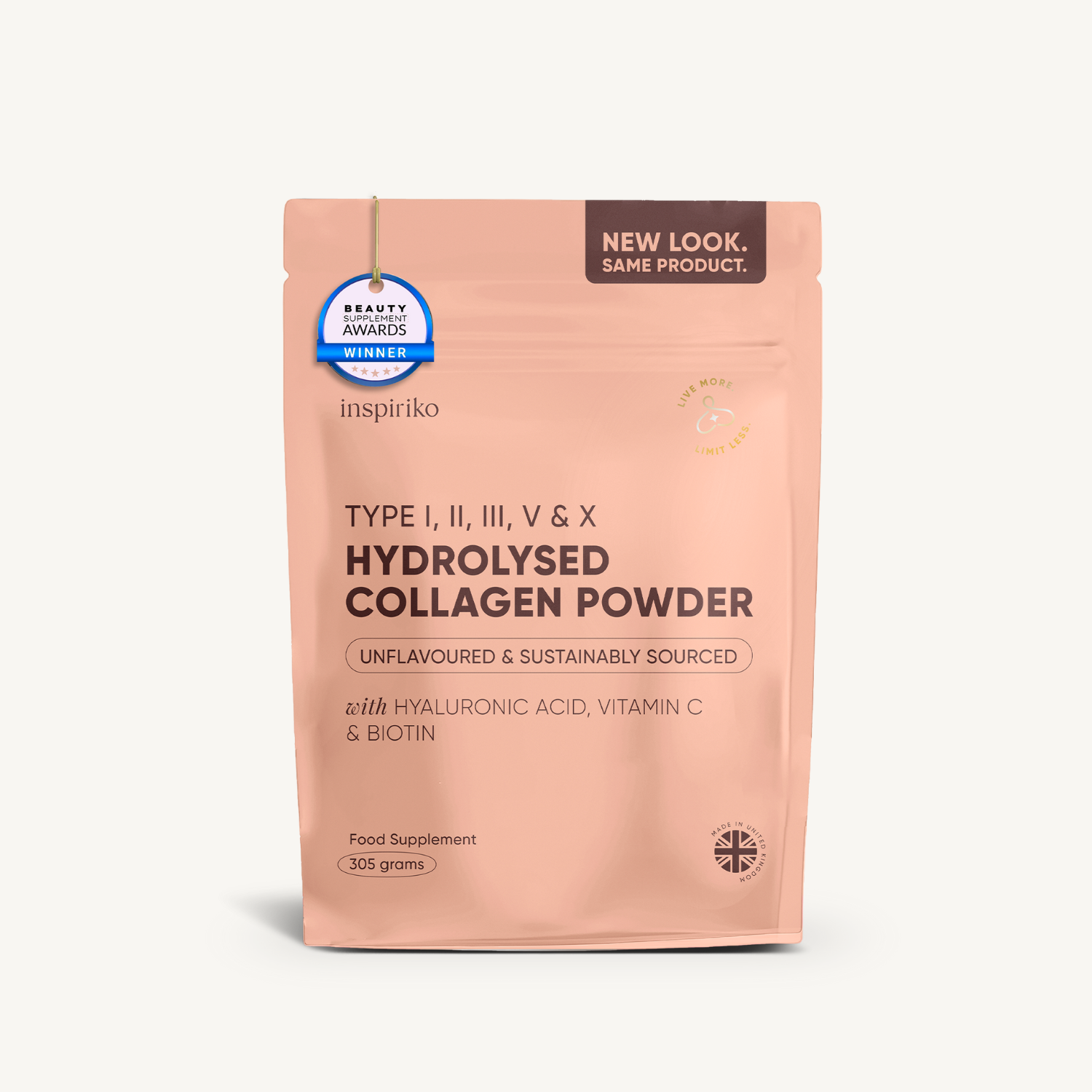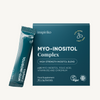Hormones may be tiny chemical messengers, but they control some of the most important processes in your body, from mood and metabolism to sleep, skin health, and even your energy levels. When your hormones are in balance, everything tends to feel “just right.” But when they’re out of balance, even slightly, you might notice changes in how you feel, think, and function.
The tricky part? Hormonal imbalance symptoms can be subtle at first, so they’re easy to dismiss or blame on stress, lack of sleep, or getting older. The sooner you recognise these early signs, the sooner you can take steps to restore balance and protect your long-term health.
Here are some early signs that your hormones may be out of balance, along with steps you can take to address them.

What Causes Hormonal Imbalance in Midlife?
Hormonal imbalance can happen at any age, but midlife brings unique challenges, especially for women approaching perimenopause or menopause. Here are some common triggers:
-
Natural ageing and perimenopause – As you enter your 40s (sometimes earlier), estrogen and progesterone levels naturally begin to shift, affecting everything from your cycles to your mood.
-
Chronic stress and elevated cortisol – Constant stress keeps your cortisol levels high, which can throw off other hormones like thyroid, insulin, and sex hormones.
-
Poor gut health and nutrient absorption issues – If your gut isn’t absorbing nutrients properly, it can affect hormone production and detoxification.
-
Exposure to endocrine disruptors – Chemicals in plastics, pesticides, and household products can mimic or block hormone function.
-
Excess sugar or caffeine intake – Too much sugar spikes insulin, and too much caffeine can impact cortisol and adrenal function.
Learn if collagen is safe for women with hormonal imbalances.
Hormonal Imbalance Symptoms in Females: How to Spot Them Early

1. Persistent Fatigue Even After Rest
If you’re sleeping 7–9 hours but still waking up tired, your hormones could be to blame. Low thyroid function, fluctuating oestrogen, or high cortisol can interfere with how your body produces and uses energy.
Why does it happen?
-
Low thyroid hormones slow down metabolism and energy production. (1)
-
High cortisol (from stress) disrupts sleep quality.
-
Oestrogen dips can affect serotonin and melatonin, making it harder to get restorative rest.
Tip: Eat well, manage stress, and try Chelated Magnesium Glycinate by Inspiriko, a gentle, highly absorbable magnesium that supports adrenal function and helps your body convert food into energy. This is one of the effective hormonal balance supplements to consider.
2. Unexplained Weight Gain (Especially Around the Middle)
If your diet and exercise routine haven’t changed, but you notice your clothes fitting tighter, especially around your waist, it might be a sign of a hormonal imbalance. This often happens because of insulin resistance, a condition where your body's tissues (like fat, muscle, and liver) don’t respond well to insulin, leading to inefficient glucose use and fat storage.
Insulin resistance increases the risk of developing type 2 diabetes and is linked to abdominal obesity, high blood pressure, and elevated triglycerides. Hormonal shifts during midlife can make it harder to maintain a healthy weight, particularly around the belly. (2)
Natural Support: Eating fiber-rich foods and taking probiotics like Love Thy Gut can reduce bloating, regulate appetite, and support better hormone balance naturally.

3. Mood Swings, Anxiety, or Irritability
Sudden mood changes, like feeling weepy, anxious, or easily irritated even without clear reasons, can be a sign of hormonal imbalance. This happens because hormones like oestrogen and progesterone influence important brain chemicals such as serotonin and GABA, which help regulate mood and calmness. (3)
When these hormone levels fluctuate, your emotional balance can be disrupted, leading to heightened anxiety, irritability, or mood swings.
Natural Support:
-
Affron® saffron and lemon balm extract, found in Cosmic Calm Herbal Sleep Aid by Inspiriko, help improve mood and reduce anxiety naturally.
-
B vitamins and zinc support emotional resilience and cognitive clarity, helping your brain manage stress and maintain balance during hormonal shifts.
4. Hot Flashes or Night Sweats
Sudden hot flashes or waking up soaked in sweat are common signs of hormonal imbalance, especially during perimenopause and menopause. These heatwaves happen because falling estrogen levels affect your body’s temperature regulation, making you feel overheated without an obvious cause.
Natural Support:
-
Phytoestrogens, which come from plants like flaxseed and soy, act like gentle estrogens in your body and can help reduce hot flashes. (4)
-
Supplements like Perimenopause & Menopause Support combine phytoestrogens with adaptogen herbs that help your body handle stress to ease hot flashes and improve sleep quality naturally.

5. Irregular or Heavy Periods
Periods that become unusually light, heavy, frequent, or suddenly stop are often caused by hormonal imbalances, particularly estrogen dominance or low progesterone during perimenopause. These shifts can disrupt your menstrual cycle, leading to discomfort and unpredictability.
Natural Support:
-
Vitex agnus castus, also called Chasteberry, is a well-researched herb that supports hormone balance in the luteal phase of your cycle. Studies show it helps regulate hormones by influencing dopamine receptors and promoting progesterone production, which can ease symptoms like PMS and irregular periods. Many women find it a natural alternative to conventional treatments. (5)
-
Lifestyle changes, such as reducing caffeine and processed foods, can also help rebalance your cycle and improve overall hormonal health.
6. Sleep Disturbances or Insomnia
Having trouble falling asleep or waking up several times at night can be a sign that your hormones are out of balance. Progesterone, known as a calming hormone, helps promote restful sleep. When progesterone levels drop, especially during perimenopause and menopause, it becomes harder to relax and stay asleep. At the same time, lower estrogen can reduce melatonin production, the hormone that regulates your sleep-wake cycle. Together, these changes make insomnia and disrupted sleep more common during hormonal shifts. (6)
Natural Support:
-
Magnesium bisglycinate, chamomile, and saffron, found in supplements like Cosmic Calm Herbal Sleep Aid, can help promote restful sleep without causing grogginess.
-
Also, limiting screen time before bed and using blue-light blockers can support your body's natural melatonin production for better sleep quality.

7. Low Libido or Vaginal Dryness
Low libido or vaginal dryness can make intimacy less enjoyable and sometimes uncomfortable. This often happens because declining oestrogen levels reduce natural lubrication and can affect sexual function.
Natural Support:
-
Maca and Omega-3s are known to support better libido, improve vaginal health, and boost circulation, which can make intimacy feel more comfortable. (7)
-
Along with these, regular pelvic floor exercises can strengthen the muscles in the pelvic area, improving arousal and overall comfort during intimate moments. These gentle exercises are easy to do at home and can make a noticeable difference over time. Taking small, consistent steps to care for your body can help bring back confidence and comfort in your intimate life while supporting overall reproductive and sexual wellness naturally.
Struggling with fatigue, mood swings, or weight gain after 40? Discover natural, effective ways to balance your hormones and feel your best again!
Final Thoughts: Your Body is Talking - Are You Listening?
Hormonal imbalances can quietly affect nearly every aspect of your well-being, from mood and energy to sleep, weight, and intimacy. While the changes may start subtly, addressing them early can help you feel more in control and protect your long-term health.
By supporting your body with nutrient-rich foods, targeted supplements, stress management, and healthy lifestyle habits, you can help restore balance naturally. Listening to your body’s signals and making gradual, consistent changes can lead to meaningful improvements over time.
With the right approach, it’s possible to feel more energized, emotionally steady, and comfortable in your skin at any age.
FAQs
What age do hormonal imbalances typically start?
Can stress alone throw off your hormones?
Are hormonal imbalances reversible?
Do I need blood tests to confirm a hormone imbalance?
What’s the first step I should take?
Related Products
References for the blog
-
Moser, S.C., Driscol, P., Lane, D., Bausch, M. and O’Connor, M., 2014. Decision support for climate adaptation: A framework for integrating stakeholder engagement and decision analysis. Environmental Science & Policy, 42, pp.22-31.
Available at: https://www.sciencedirect.com/science/article/abs/pii/S0261561414001903 -
Hammond, S., Walker, M.L., Smith, J.D. and Johnson, R.P., 2021. Title of the article. Journal Name, Volume(Issue), pages.
Available at: https://www.sciencedirect.com/science/article/pii/S0002944021002455 -
Bendis Peyton Christine, Zimmerman Sydney, Onisiforou Anna, Zanos Panos, Georgiou Polymnia. 2024. 'The impact of estradiol on serotonin, glutamate, and dopamine systems'. Frontiers in Neuroscience, 18.
Available at: https://www.frontiersin.org/journals/neuroscience/articles/10.3389/fnins.2024.1348551/full -
Brooks, J.D., Ward, W.E., Lewis, J.E., Hilditch, J., Nickell, L., Wong, E. and Thompson, L.U., 2004. Supplementation with flaxseed alters estrogen metabolism in postmenopausal women to a greater extent than does supplementation with an equal amount of soy. American Journal of Clinical Nutrition, 79(2), pp.318–325.
Available at: https://pubmed.ncbi.nlm.nih.gov/14749240/ -
Schmidt, P.J., Roca, C.A., Rubinow, D.R., 2019. Vitex agnus castus for premenstrual syndrome. Frontiers in Pharmacology, 10, 1391.
Available at: https://pmc.ncbi.nlm.nih.gov/articles/PMC6494412/ -
Jehan, S., Jean-Louis, G., Zizi, F., Auguste, E., Pandi-Perumal, S.R., Gupta, R., Attarian, H., McFarlane, S.I., Hardeland, R. and Brzezinski, A., 2017. Sleep, melatonin, and the menopausal transition: What are the links? Sleep Science, 10(1), pp.11–18.
Available at: https://pmc.ncbi.nlm.nih.gov/articles/PMC5611767/ -
Ulloa del Carpio, N., Alvarado-Corella, D., Quiñones-Laveriano, D.M., Araya-Sibaja, A., Vega-Baudrit, J., Monagas-Juan, M., Navarro-Hoyos, M. and Villar-López, M., 2024. Exploring the chemical and pharmacological variability of Lepidium meyenii: a comprehensive review of the effects of maca. Frontiers in Pharmacology, 15, p.1360422.
Available at: https://pmc.ncbi.nlm.nih.gov/articles/PMC10910417/





